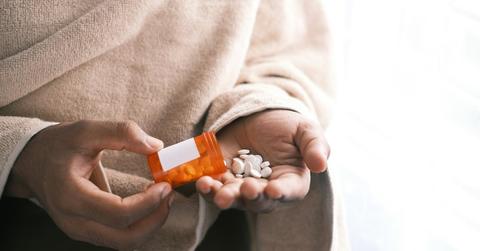How Much Are Opioids, Fentanyl, and Alcohol Costing Texas Every Year? Who Is Trying To Help?
The goal of these rehabs isn’t just to reduce the financial cost of addiction to Texans but to restore lives and make communities healthier
Aug. 14 2025, Published 4:28 p.m. ET

Opioids, fentanyl, and alcohol aren’t just personal struggles; they carry an enormous price tag for Texas communities. The costs show up in hospital bills, law enforcement expenses, lost productivity, and the ripple effects on families who have to rearrange their lives around a loved one’s addiction. It’s a drain measured in billions of dollars, and it’s growing. While statistics can feel impersonal, behind every number is a life altered, a family strained, and a system working overtime to respond.
The good news is that across Texas, people and organizations are rethinking prevention, treatment, and support in ways that could save both lives and money.
The Rising Demand for Pain Therapy Without Opioids
The opioid crisis didn’t start with illegal drugs. For many, it began with a prescription after surgery, a sports injury, or chronic pain. The growing awareness of how quickly dependency can take hold has created a new wave of demand for pain therapy that bypasses addictive medications altogether. Healthcare providers and patients are exploring treatments that focus on healing and mobility instead of masking pain.

This shift has been especially relevant in sports medicine and post-operative care, where options like targeted physical therapy, nerve blocks, and even certain non-addictive medications are helping patients recover without risking long-term dependency. Clinics that once defaulted to prescribing opioids are now working with multidisciplinary teams of specialists to treat pain from multiple angles.
The Financial Toll Beyond the Obvious
It’s easy to think of the cost of addiction in terms of medical bills or treatment expenses, but the financial impact runs far deeper. For Texas, this includes lost productivity when workers miss shifts or can’t hold steady employment, increased insurance premiums for employers, and taxpayer-funded resources stretched thin by emergency room visits and law enforcement interventions.
Court systems see a steady stream of cases involving substance-related charges, which in turn increases public defense costs. On top of that, families often absorb hidden expenses like paying for travel to treatment centers, helping with rent or utilities when a loved one can’t work, or covering childcare when a parent is unavailable.
Community-Based Prevention Efforts
The fight against opioids, fentanyl, and alcohol-related harm doesn’t start in the hospital or courtroom; it begins in neighborhoods, schools, and workplaces. In Texas, community-led prevention efforts are making a difference by educating people before they face a crisis. This includes school programs that go beyond “just say no” messaging and instead focus on teaching coping skills, emotional regulation, and how to recognize early warning signs of misuse.

Local coalitions are also partnering with law enforcement to host medication take-back events, removing unused prescriptions from homes before they can be misused. Employers are offering confidential counseling services and mental health days to help workers address stress before it turns into self-medication.
Expanding Access in Rural Areas
One of Texas’s biggest challenges is geography. Many rural counties have no nearby treatment facilities, meaning residents have to travel hours to get help. This distance creates a barrier that’s both logistical and emotional.
To address this, mobile health units and telehealth services are starting to fill the gap. These programs bring counseling, medical evaluations, and follow-up appointments directly to people who might otherwise go without care. In some communities, churches and nonprofit organizations are offering safe meeting spaces for virtual support groups, making it possible for residents to connect with others in recovery without leaving town. By removing physical barriers, these efforts are giving more Texans a fair shot at starting and sustaining recovery.
Who Is Trying to Help?
At the forefront in the battle against opioids, fentanyl, and alcohol in Texas are recovery centers like Turning Point. With multiple locations in the Lone Star State, some of Turning Point’s offerings include an outpatient alcohol rehab in Fort Worth and an IOP in Dallas (IOP stands for Intensive Outpatient Program). All of their locations are earning consistent 5-star ratings on Google Reviews.
Ana writes about her friend Matt, who is going through Turning Point’s IOP: "My friend feels heard, supported, and, most importantly, hopeful. That alone speaks volumes. I’m incredibly grateful for everything this team is doing to help people rebuild their lives with dignity and strength. If you or someone you love is looking for real support and lasting change, I wouldn’t hesitate to recommend this program."
Ashley writes about her own experience: "Turning Point gave me a place to go when I thought I had tried everything. The leaders are incredible and I feel like it's making a huge difference in my recovery."
Tyler, another client, writes about his experience: "From the moment I walked through the door, I was met with compassion, understanding, and a level of support I never knew I needed. The staff genuinely care and go above and beyond to help you grow, heal, and rebuild."
The goal of these rehabs isn’t just to reduce the staggering financial cost of addiction to Texans but to restore lives, stabilize families, and make communities healthier. Every person who gets into treatment and begins their road to recovery is a step toward a Texas where the numbers start to go down.
